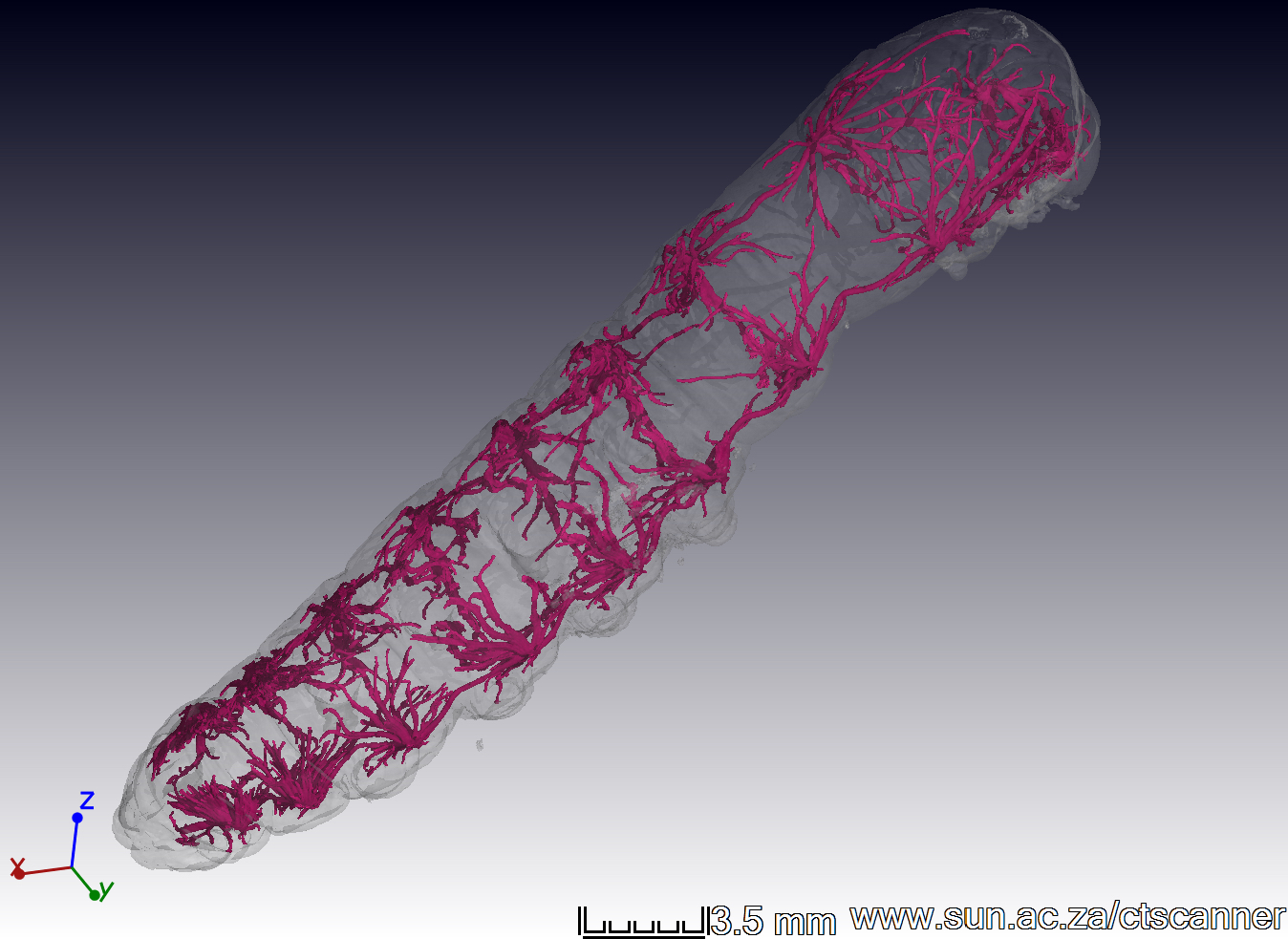About the Applied Physiological Ecology (APE) lab:
 Our research is largely focused on understanding the factors affecting climatic stress resistance in insects and the potential implications thereof for climate change.
Our research is largely focused on understanding the factors affecting climatic stress resistance in insects and the potential implications thereof for climate change.
The research interests of Prof. John S. Terblanche span a range of environmental and evolutionary physiology topics. He is particularly interested in the mechanistic, physiological and genetic basis for stress adaptations, how rapidly these systems can change, and the extent and persistence of induced changes. Of further interest is whether or not these types of environment-trait associations matter to a species’ population dynamics, range expansions (invasions) or geographic distributions in the longer term.
 A large amount of this work has been undertaken on tsetse flies (Diptera, Glossinidae) as a model for vectors of disease in Africa. The research group occasionally get drawn back into the world of vector borne diseases and end up using the fascinating tsetse (Glossina spp.) as a model system for various questions (e.g. energetics of blood-meal digestion, maternal effects).
A large amount of this work has been undertaken on tsetse flies (Diptera, Glossinidae) as a model for vectors of disease in Africa. The research group occasionally get drawn back into the world of vector borne diseases and end up using the fascinating tsetse (Glossina spp.) as a model system for various questions (e.g. energetics of blood-meal digestion, maternal effects).
The type of questions that are currently tackled by the APE lab include:
- How do animals adjust their tolerance to a particular situation within remarkably short time spans?
- What are the cues for such tolerance changes and how long do any induced changes persist (e.g. within vs. across life-stages, across generations)?
- Does an animal’s tolerance to environmental extremes make a difference to their geographic distribution and survival in the long term?
We also dabble with research on flight performance and dispersal ecology, asking, for example, if a particular estimate of flight performance determined in the lab translates into equivalent performance under field conditions. We also ask how plastic is an animals flight performance and can dispersal ability be modified through e.g. biochemical adjustments in enzyme kinetics, changes in gene expression profiles, or variation in wing morphology caused by rearing conditions.

We continue to work on similar questions across a range of organisms of either agricultural, evolutionary or health importance.
One additional research focus points in the group is the evolution of different gas exchange patterns in insects as a form of environmental adaptation. One noteworthy pattern is discontinuous gas exchange (DGE) and is driven largely by an insect’s spiracular activity.
 It has been argued that modulating spiracle opening during DGE can save respiratory water although this idea is contentious for several reasons, e.g. animals abandon DGE under conditions when it should be most useful. A host of potential explanations for DGE exist and we are actively involved in pursuing these from experimental and comparative physiology perspectives. We’ve recently developed a theoretical model of DGE to aid us in the pursuit of a satisfying answer. Understanding respiratory control, gas exchange patterns and metabolic responses to diverse atmospheres also has significant applications to other research fields (e.g. modified atmosphere treatments for post-harvest pest control).
It has been argued that modulating spiracle opening during DGE can save respiratory water although this idea is contentious for several reasons, e.g. animals abandon DGE under conditions when it should be most useful. A host of potential explanations for DGE exist and we are actively involved in pursuing these from experimental and comparative physiology perspectives. We’ve recently developed a theoretical model of DGE to aid us in the pursuit of a satisfying answer. Understanding respiratory control, gas exchange patterns and metabolic responses to diverse atmospheres also has significant applications to other research fields (e.g. modified atmosphere treatments for post-harvest pest control).
 Central to the labs’ research is physiological variation and its causes and consequences at different hierarchical levels (individuals, populations and species). We work on a range of organisms and focus on a diverse array of species to address key questions and themes. In consequence, a wide range of animals are used and include insects, collembola, whip-spiders (Amblypygids), scorpions and even lizards.
Central to the labs’ research is physiological variation and its causes and consequences at different hierarchical levels (individuals, populations and species). We work on a range of organisms and focus on a diverse array of species to address key questions and themes. In consequence, a wide range of animals are used and include insects, collembola, whip-spiders (Amblypygids), scorpions and even lizards.
CT scan of respiratory system in P. tricolor. – Read more about this publication here:


